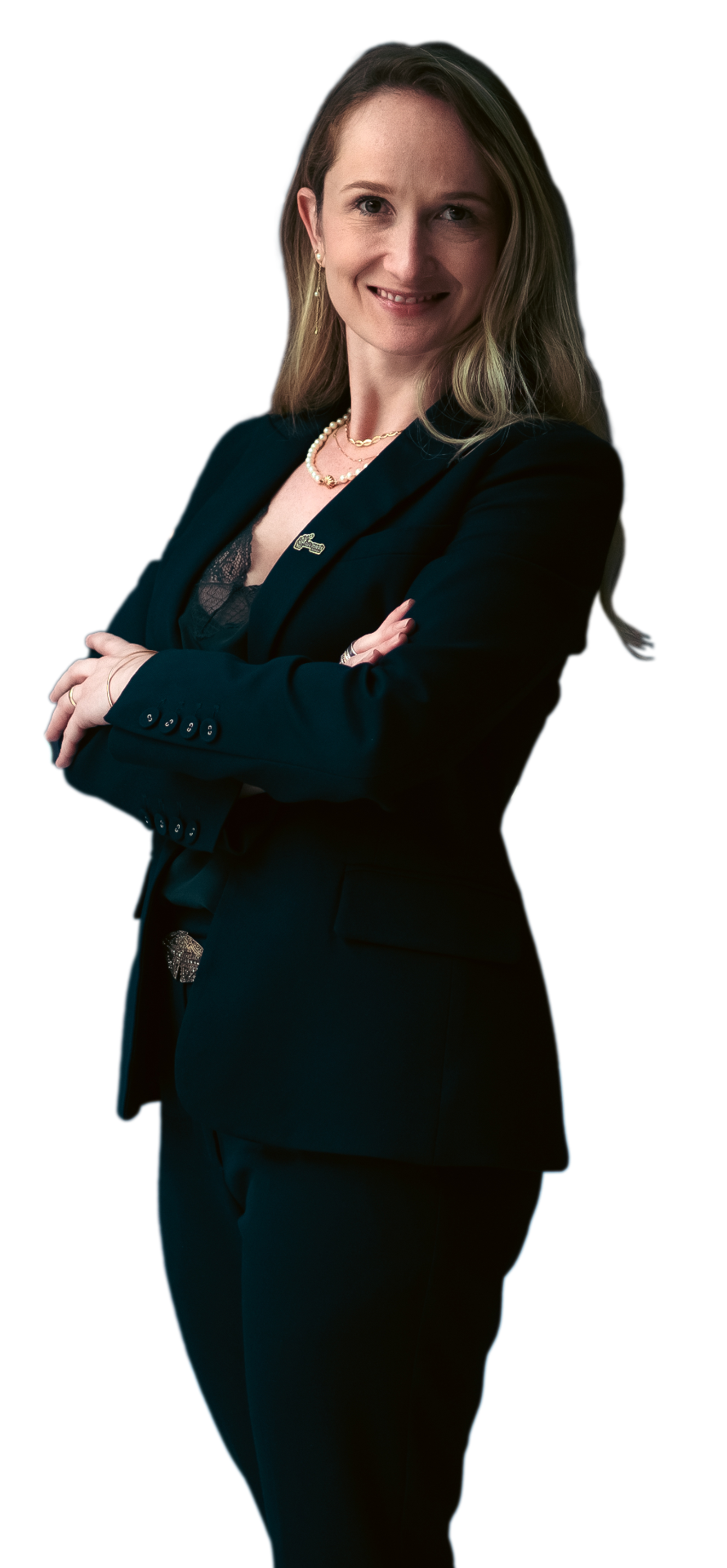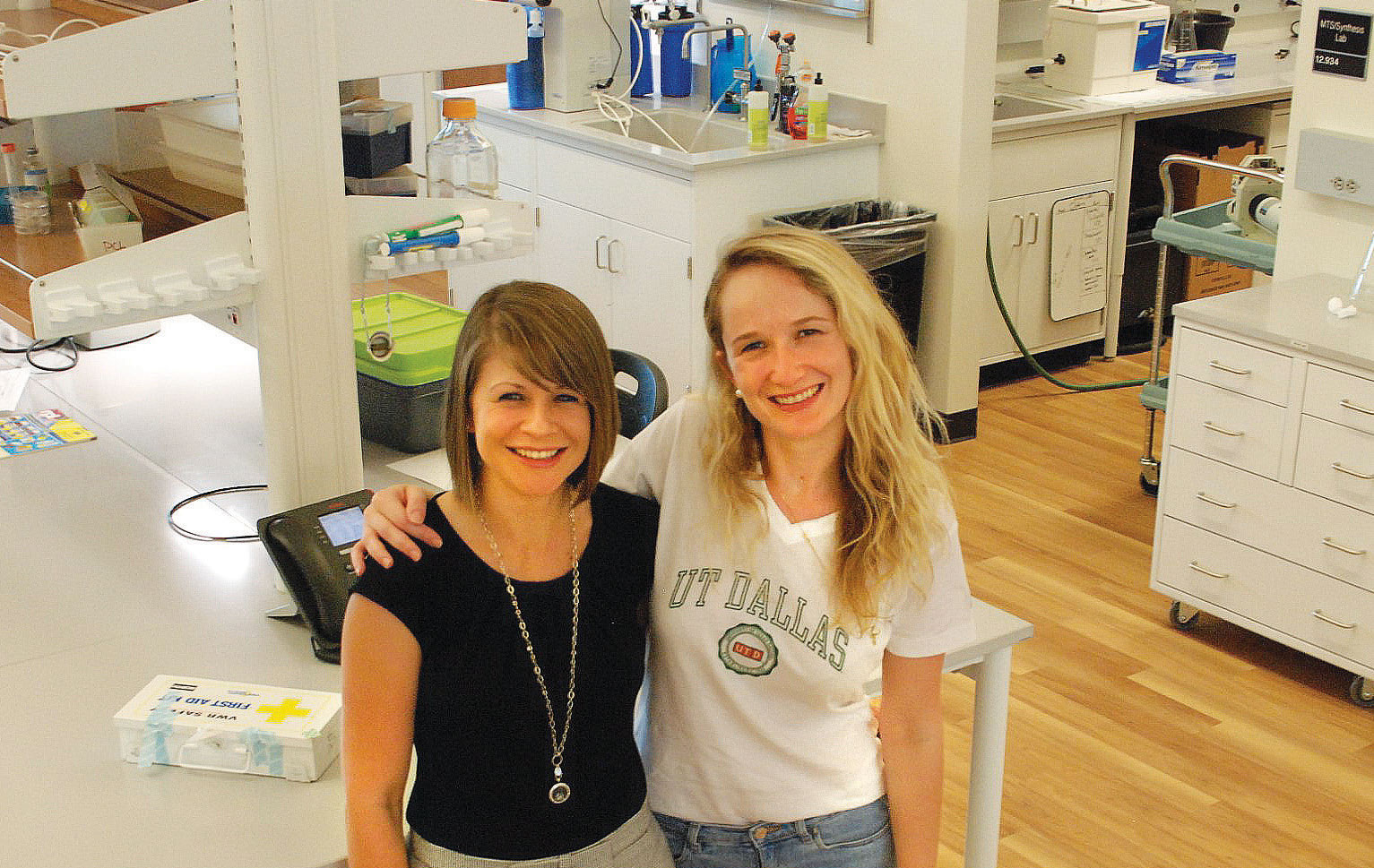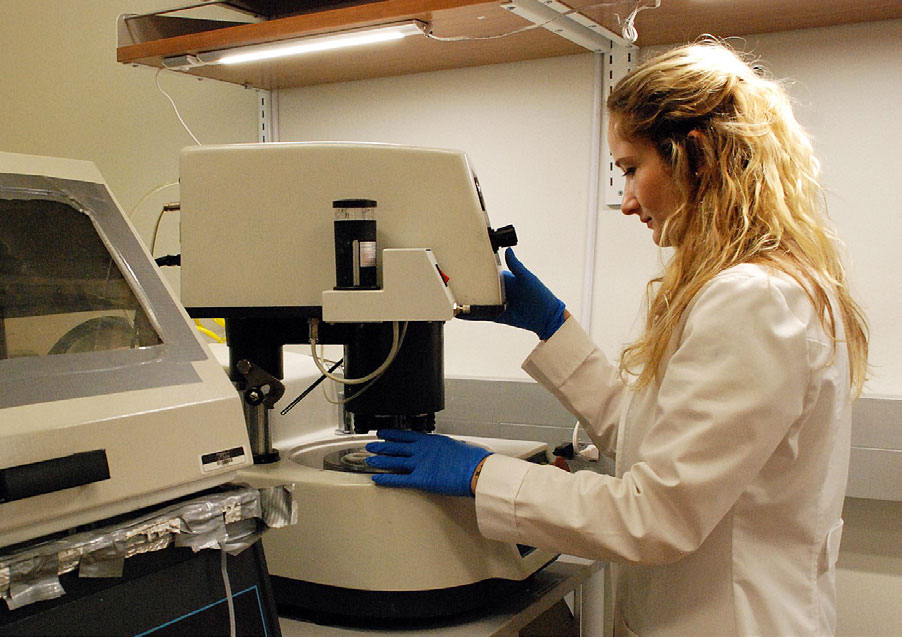Alumna returns home and starts two successful companies, creating a chain reaction by recruiting
others to UT Dallas
With a bachelor’s degree in pharmacy and a master’s degree in chemistry, Dr. Izabelle de Mello Gindri PhD’16 started her journey with the Department of Bioengineering in the Erik Jonsson School of Engineering and Computer Science at The University of Texas at Dallas.
A decade later, de Mello Gindri is the co-founder of two startups, one of which has quickly risen to become one of the biggest producers of absorbable pellets used for hormone replacement therapy and to treat metabolic disorders in her native country of Brazil.
“Izabelle is a testament to following your passion,” said Dr. Stephanie G. Adams, Jonsson School dean. “Who could have predicted that degrees in pharmacy, chemistry and bioengineering would have led to this? Izabelle’s experience and accomplishments are a true testament to the possibilities when we work across the aisles or benches in STEM.”
de Mello Gindri credits her bioengineering experience in the lab of Dr. Danieli Rodrigues, associate professor of bioengineering, with successfully broadening her set of skills.
“Dr. Rodrigues opened doors at UT Dallas and motivated me through research tools and opportunities to present and explain my work and learn from other collaborators and colleagues,” de Mello Gindri said. “She taught me to look further into problems with a multidisciplinary view.”
“I enjoy focusing on the science but also the fact that I can have an impact in daily living
is a huge motivator for me.”
— Dr. Izabelle de Mello Gindri PhD’ 16, co-founder of two biomedical companies
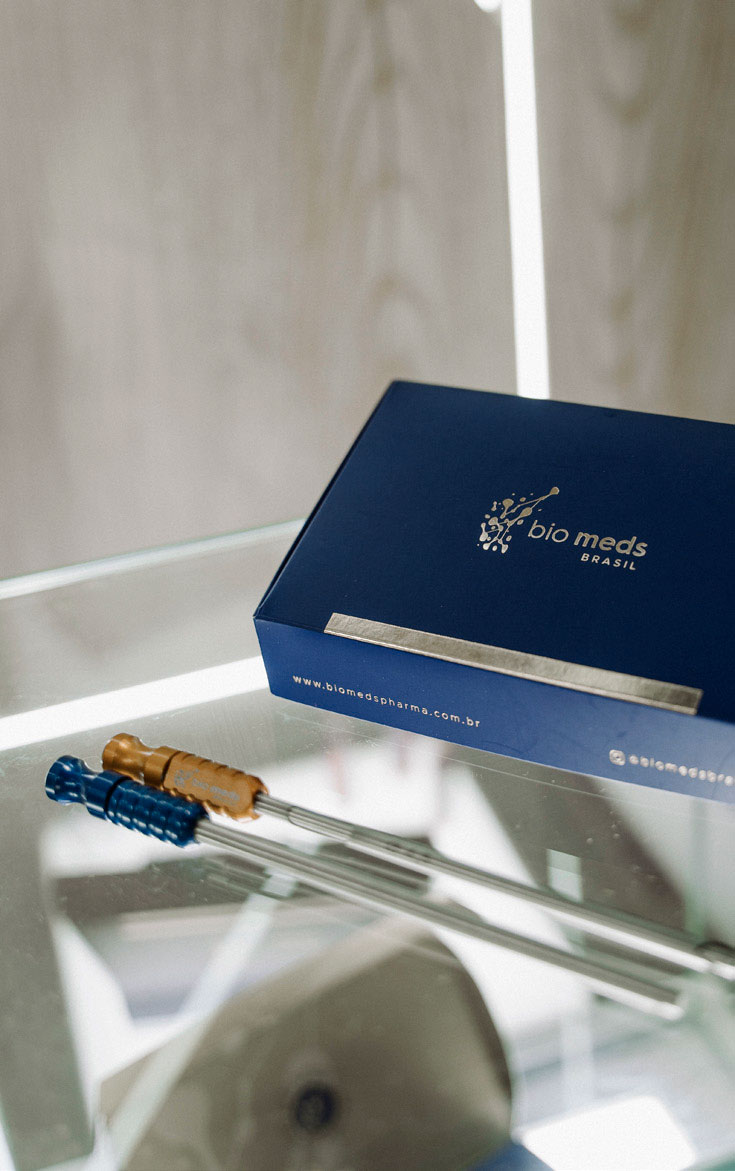
de Mello Gindri’s company named bio meds Brasil produces hormonal and nonhormonal absorbable medications for more than 50,000 patients. Hormone replacement pellets produce target hormones such as testosterone, estradiol, estriol and oxytocin, and the steroid gestrinone, which is used to treat conditions such as endometriosis, uterine fibroids and heavy menstrual bleeding. The nonhormonal medications include NAD+, a coenzyme used to slow the effects of aging; tadalafil, which is used to treat erectile dysfunction, enlarged prostate and high blood pressure; an anastrozole, a molecule used to inhibit conversion of testosterone into estradiol; and metformin, which is used to treat insulin resistance and other clinical conditions such as polycystic ovary syndrome (PCOS).
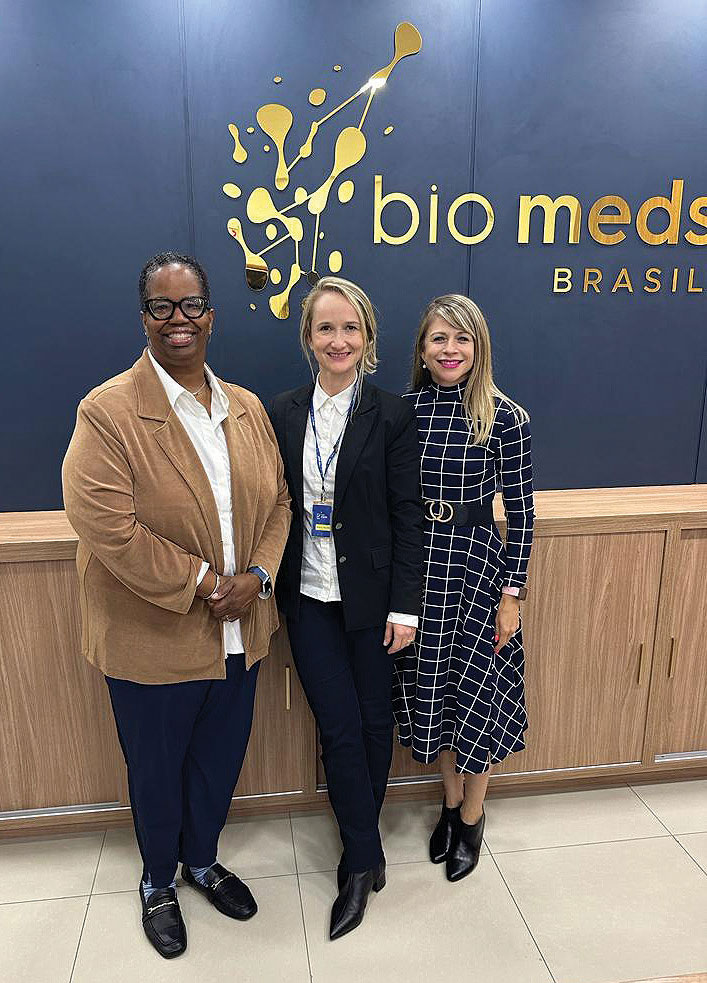
The second company she founded, Iaso Biodelivery, works in the development of drug delivery systems. This company is currently working on the development of an implant to treat overactive bladder and another implant that goes under the skin to treat Alzheimer’s disease.
“Sometimes, creating a drug makes a difference when it comes to the pharmacy field, but other times, it is in making it easier for people to use the drug,” she said. “I enjoy focusing on the science but also the fact that I can have an impact in daily living is a huge motivator for me.”
Adams said that type of motivation attracts many to the field.
“It has long been established that one of the things that makes bioengineering a desirable field of study is the opportunity to help others,” said Adams, holder of the Lars Magnus Ericsson Chair in Electrical Engineering and a professor of systems engineering.
Though she graduated in 2016, de Mello Gindri’s impact is still felt at UT Dallas. Her work was instrumental in the establishment of a new research line in the Rodrigues laboratory.
“Combining her background in pharmacy, chemistry and bioengineering, she contributed to the development of novel coatings for dental and orthopedic implants,” Rodrigues said. “This work has resulted in multiple publications, a patent and federal funding.”
“I knew she would return to Brazil and make a difference! I am proud of her achievements as a graduate student and now as a CEO, but personally, I think the most remarkable attributes that define Dr. de Mello Gindri are her courage, perseverance and creativity. I hope her story continues to inspire the new generation of researchers, entrepreneurs and international students.”
de Mello Gindri also helps recruit students from Brazil, such as when Rodrigues and Adams came as part of a recruiting trip.
“I had the opportunity to connect with Dr. Rodrigues and Dean Adams here in Brazil when they visited Universidade Federal de Santa Catarina,” de Mello Gindri said. “The visit shows the Jonsson School’s commitment and vision to broadening international collaborations.”
Adams said she was delighted to visit de Mello Gindri at bio meds Brasil as part of her trip to Brazil this past summer.
“I didn’t know much about her company, but as someone who is a direct benefactor of a similar technology, I instantly understood the importance of her work,” Adams said.
de Mello Gindri said that she knew the PhD at UT Dallas would be a life-changing opportunity and that the knowledge consolidated in this experience would help her support Brazil’s growing scientific community.
“Our country is making remarkable developments in this field,” she said. “To watch our companies grow and make a difference and encourage others is more than I could have ever imagined. But UT Dallas helped me imagine and shape them and gave me the skills that were important in making this happen.”
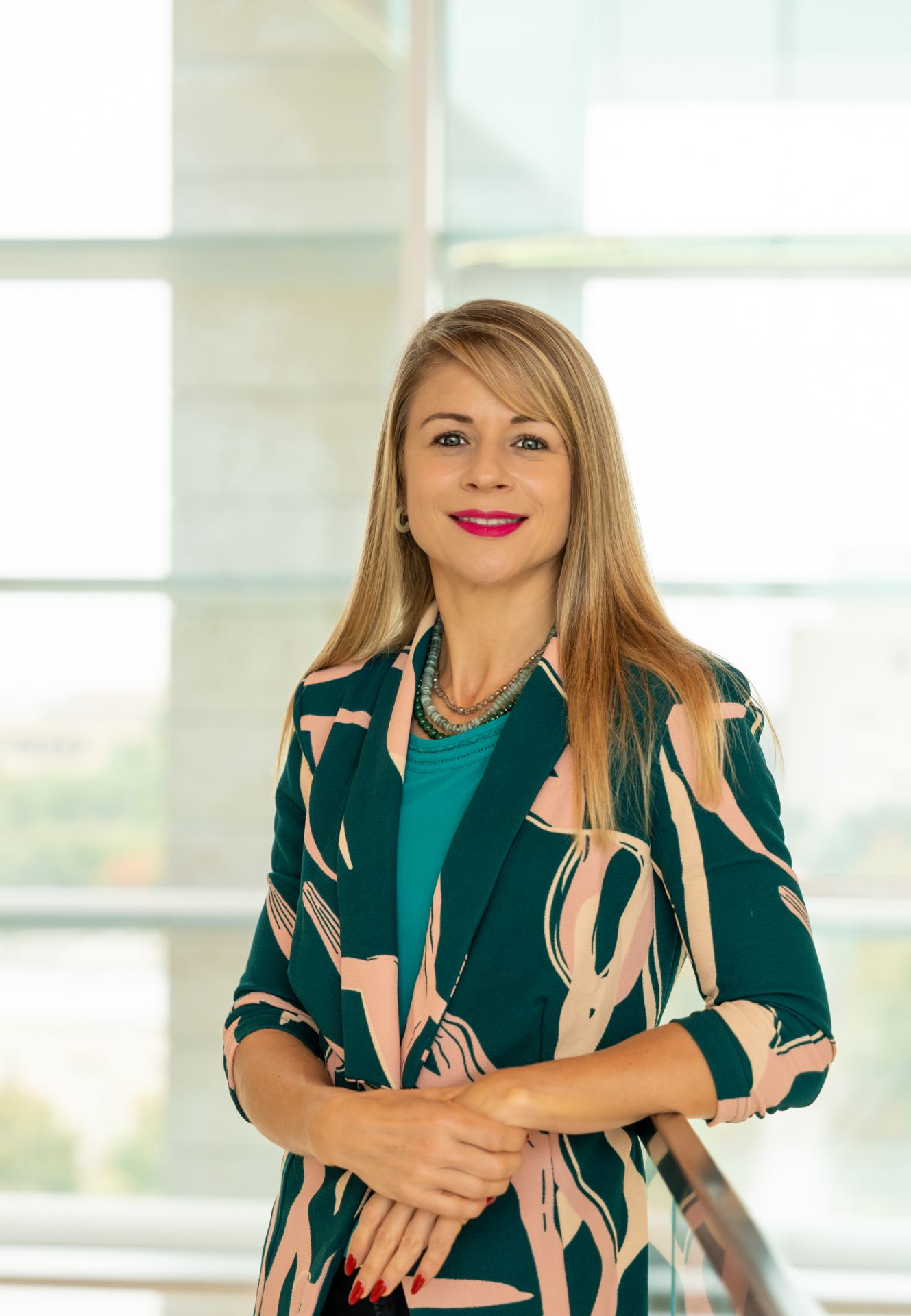
Rodrigues in 2023
Discover More
BUILDING A BETTER DESIGN COURSE
BUILDING A BETTER BIOENGINEERING DESIGN COURSE: PREPARES STUDENTS FOR CAPSTONE
CHARGED UP for Battery Research
Collaboration Leads to New Center, University’s Largest Grant As electric vehicles and renewable energy sources including solar and wind are scaling production, researchers across the globe are racing to develop a critical system component — grid‐scale battery storage. Faculty from the Erik...
Empowered Learner
Q&A with Mercy Chelangat Koech Mercy Chelangat Koech, an electrical engineer from Kenya, has relocated to The University of Texas at Dallas to pursue a PhD in electrical engineering in the Erik Jonsson School of Engineering and Computer Science. Driven by her...
Collective Data, Individual Health
Distinguished Lecturer Discusses Expanding Genomics to PhenomicsFragments of data about our health are collected continuously by our watches and smartphones and then transmitted to our electronic health records. How can these loose data points translate into meaningful, long-term health solutions?...
HALFTIME RALLY
President's Gathering Recognizes Jonsson School BenefactorsUniversity of Texas at Dallas leaders gathered recently to celebrate the halfway point of New Dimensions: The Campaign for UT Dallas, the second major fundraising campaign in University history and to honor supporters of the Erik Jonsson...
SERVICE AT SCALE
SERVICE AT SCALE

